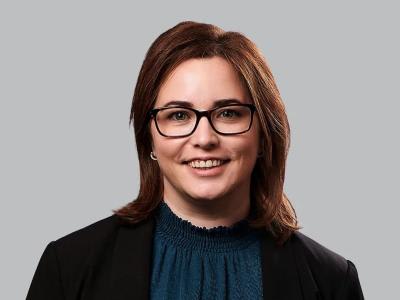It is all too easy to delay your estate planning, as thinking about what happens to your estate after you pass away can be quite daunting. All too often, people fail to ensure their estate is properly taken care of, which can result in unnecessary stress for their loved ones.
 Below, we have outlined the top ten frequently asked questions on estate planning to make beginning this process a little easier for you.
Below, we have outlined the top ten frequently asked questions on estate planning to make beginning this process a little easier for you.
- Why do I need a will?
- What happens if I pass away without a will?
- What is the downside of using a will kit?
- Who should be my executor?
- Do I need a will if I have a power of attorney?
- What assets are covered by my will?
- Why isn’t my superannuation included in my will?
- What is a binding death benefit nomination?
- Who can receive my superannuation when I die and in what form?
- What tax is payable on my estate?
1. WHY DO I NEED A WILL?
A will is a legal document that sets out your wishes for what you would like to happen when you pass away. This includes funeral plans, guardianship arrangements for any young children, and how you want your assets to be distributed. If you have assets, it is very important that you have a will. Before you say you’re too young to have any assets, it is important to note that if you have a life insurance policy, that will be considered an asset when it’s paid out.
2. WHAT HAPPENS IF I PASS AWAY WITHOUT A WILL?
If you pass away without a will, the courts will appoint an administrator, who can be anyone who is entitled to a share of your estate. Your assets will be distributed according to a fixed formula and prescribed list of beneficiaries that they are required to follow when dealing with the estates of people who pass away without a will.
 3. WHAT IS THE DOWNSIDE OF USING A WILL KIT?
3. WHAT IS THE DOWNSIDE OF USING A WILL KIT?
There is nothing wrong with using a will kit from the post office – but it is incredibly easy to make mistakes when using one and mistakes may invalidate your will. Writing a will is not just about listing who gets what when you pass away. It is important that you understand any and all tax implications, that you’re only including eligible assets in your will, and that you consider what the ‘everything else’ residual clause means for you. Having a professional review of your will is a small price to pay to save you and your beneficiaries a lot of money and unnecessary stress in the long term.
4. WHO SHOULD BE MY EXECUTOR?
Being the executor of an estate is a difficult job at the best of times, so it is important that you carefully consider who to appoint to this role. You may appoint more than one executor, but these people will need to be able to work together. If your children don’t get along or live on opposite sides (or outside) of the country, appointing them as joint executors is possibly not a good idea. You can consider appointing a friend, family member, or even a professional – but you need to be aware of the potential fees that may be incurred.
5. DO I NEED A WILL IF I HAVE A POWER OF ATTORNEY?
Yes, you do need a will if you have a power of attorney – these are two separate things. Your power of attorney is someone you appoint to administer your financial affairs while you are alive. In contrast, your will is a document that only comes into effect only when you pass away. Both roles hold a great deal of power and the person or people you appoint to both roles should be someone you respect and trust to carry out your wishes.
6. WHAT ASSETS ARE COVERED BY MY WILL?
Your will covers personal assets and may include bank accounts, cars, real estate, and shares. Be careful though – it does not include assets owned by a trust, or your superannuation, and excludes any assets that you hold jointly (i.e. a joint bank account, or property held as joint tenants). If you have a family trust or company, make sure you consider any loans these entities might owe you – you may not be aware these even exist.
 7. WHY ISN’T MY SUPERANNUATION INCLUDED IN MY WILL?
7. WHY ISN’T MY SUPERANNUATION INCLUDED IN MY WILL?
Your superannuation is a type of trust, which means that it is the trustee of the superfund who determines where the benefits are paid, not your executor. Your super fund trustee may allow you to provide them with a binding death benefit nomination that instructs who should receive your superannuation when you pass away. Be careful though – superannuation can only be paid to certain people, and it can carry a tax liability when it isn’t paid to a spouse or financial dependent, so careful consideration should be taken.
8. WHAT IS A BINDING DEATH BENEFIT NOMINATION?
A binding death benefit nomination is a special form that binds and directs the trustee to pay your superannuation (including any insurance) to your nominated beneficiaries. These documents have very specific rules attached to them, and they are often specific to your superannuation fund itself. Some expire in three years, whereas others will continue to remain valid unless you choose to revoke them. If completed correctly, they provide certainty over where your superannuation will end up.
9. WHO CAN RECEIVE MY SUPERANNUATION WHEN I PASS AWAY AND IN WHAT FORM?
Your superannuation can be paid to your spouse, your children, to your estate, or a combination of all three. There are instances where your spouse and young children can be paid your superannuation in the form of a pension, instead of receiving a lump sum, but you should seek specific advice from the trustee of your super fund. If you have a self-managed superannuation fund (SMSF), you should speak to your accountant for further advice.
10. WHAT TAX IS PAYABLE ON MY ESTATE?
In general, there is no tax payable on the distribution of assets from your estate to your beneficiaries, but there are still some taxation issues to consider.
For example, your estate may need to pay capital gains tax on assets that are sold before being distributed to beneficiaries.
There are also tax implications on the distribution of assets from superannuation funds to beneficiaries that you should be made aware of when you undertake your estate planning.
Is your will up to date and accurate?
Over the past century, thousands of clients and their families have turned to seek professional advice from the team at RSM.
For peace of mind, contact your local RSM office to arrange an initial consultation with one of our estate planners today.





